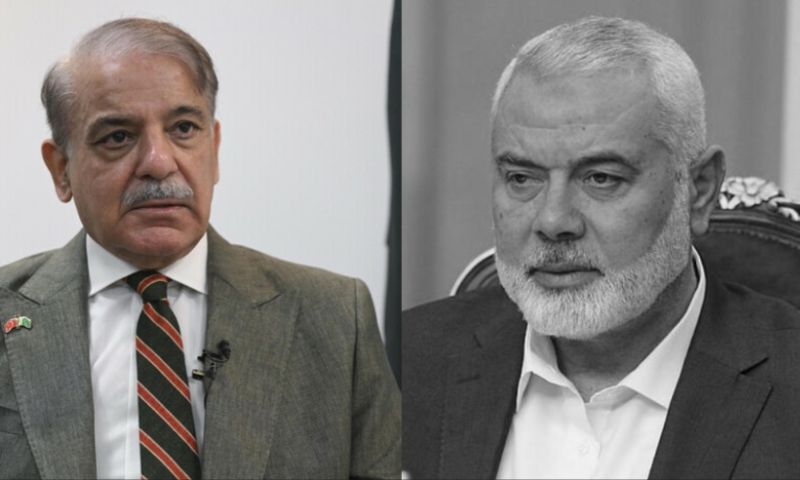ISLAMABAD: Pakistan is observing today a day of mourning following the assassination of Hamas Political Bureau chief Ismail Haniyeh to express full solidarity with the Palestinian people.
Prime Minister Shehbaz Sharif on Thursday strongly denounced the attack that led to martyrdom of Ismail Haniyeh in Iran terming it a barbaric act that was a flagrant violation of international laws and rules.
Sharif condemned the extraterritorial killing as a clear violation of international law, which has been widely condemned by Pakistan and other countries, including Turkiye, Russia, Iran, China, and Malaysia.
In a meeting in Islamabad addressing the situation in Palestine, Sharif highlighted the tragic loss of Haniyeh’s family and criticized the ongoing violence in the region. He noted that over the past nine months, more than 40,000 Palestinians, including thousands of children, have lost their lives due to the conflict.
The Prime Minister criticized Israel for ignoring International Court of Justice (ICJ) rulings and United Nations resolutions, accusing Israeli Prime Minister Benjamin Netanyahu of attempting to destroy Palestine. He also expressed gratitude for the support from Western countries like Ireland and Spain, which advocate for Palestinian rights and a two-state solution.
The meeting, attended by representatives from various political parties such as the Pakistan Muslim League-Nawaz (PML-N) and Pakistan Peoples Party (PPP), expressed unified outrage over Israeli actions and reaffirmed support for the Palestinians.
As part of the national day of mourning on August 2, a national funeral prayer in absentia for Haniyeh will be held after Friday prayers, and a special resolution supporting Palestine will be presented in Parliament. The meeting also pledged continued humanitarian aid, including medical support for injured Palestinians.
The participants called on the international community to move beyond neutrality and take decisive action to end the violence in Palestine, ensure justice for the victims, and uphold international laws and human rights standards.


